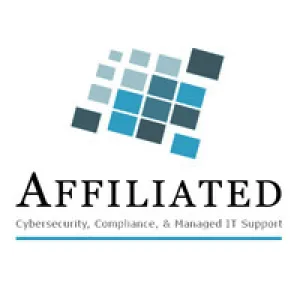August 25, 2025
The buzz around artificial intelligence (AI) is undeniable—and for good reason. Popular tools like ChatGPT, Google Gemini, and Microsoft Copilot are revolutionizing how businesses operate. From generating content and responding to customers to drafting emails, summarizing meetings, and assisting with coding or spreadsheets, AI is becoming indispensable.
AI offers remarkable time-saving benefits and boosts productivity significantly. However, like any powerful technology, improper use can lead to major risks—especially when it concerns your company's data security.
Even the smallest businesses face these vulnerabilities.
Understanding the Core Issue
The challenge isn’t the AI technology itself, but how it’s applied. When employees input sensitive information into public AI platforms, that data might be stored, analyzed, or even used to train future AI models. This exposes confidential or regulated information without anyone realizing it.
In 2023, Samsung engineers inadvertently leaked internal source code into ChatGPT, sparking a major privacy concern. The incident was so serious that Samsung banned the use of public AI tools company-wide, as reported by Tom's Hardware.
Imagine this happening in your workplace—an employee pastes client financial details or medical records into ChatGPT for quick summaries, unaware of the risks. Within moments, sensitive data could be compromised.
Emerging Threat: Prompt Injection Attacks
Beyond accidental data leaks, cybercriminals are exploiting a sophisticated tactic called prompt injection. They embed harmful commands within emails, transcripts, PDFs, or even YouTube captions. When AI tools process this content, they can be manipulated into revealing sensitive information or performing unauthorized actions.
Simply put, the AI unknowingly becomes an accomplice to attackers.
Why Small Businesses Are Especially at Risk
Many small businesses lack oversight on AI tool usage. Employees often adopt these tools independently, with good intentions but without clear guidelines. Many mistakenly treat AI tools like advanced search engines, unaware that the data they share could be permanently stored or accessed by others.
Few organizations have established policies or training to guide safe AI use.
Take Control: Four Essential Steps
You don’t have to ban AI, but you must manage its use wisely.
Start with these four actions:
1. Develop a clear AI usage policy.
Outline approved tools, specify data types that must never be shared, and designate a point of contact for questions.
2. Train your team effectively.
Educate employees on the risks of public AI platforms and explain threats like prompt injection.
3. Adopt secure, enterprise-grade AI platforms.
Encourage use of trusted solutions like Microsoft Copilot that prioritize data privacy and compliance.
4. Monitor AI tool usage.
Keep track of which AI services are in use, and consider restricting access to public AI sites on company devices if necessary.
The Bottom Line
AI is transforming business—and it’s here to stay. Companies that embrace AI safely will gain a competitive edge, while those ignoring security risks expose themselves to hackers, regulatory penalties, and data breaches. Just a few careless keystrokes can put your entire business at risk.
Let's discuss how to safeguard your company’s AI use. We’ll help you craft a robust, secure AI policy and protect your data without hindering productivity. Contact us today at 614-889-6555 or click here to schedule your Consult.




